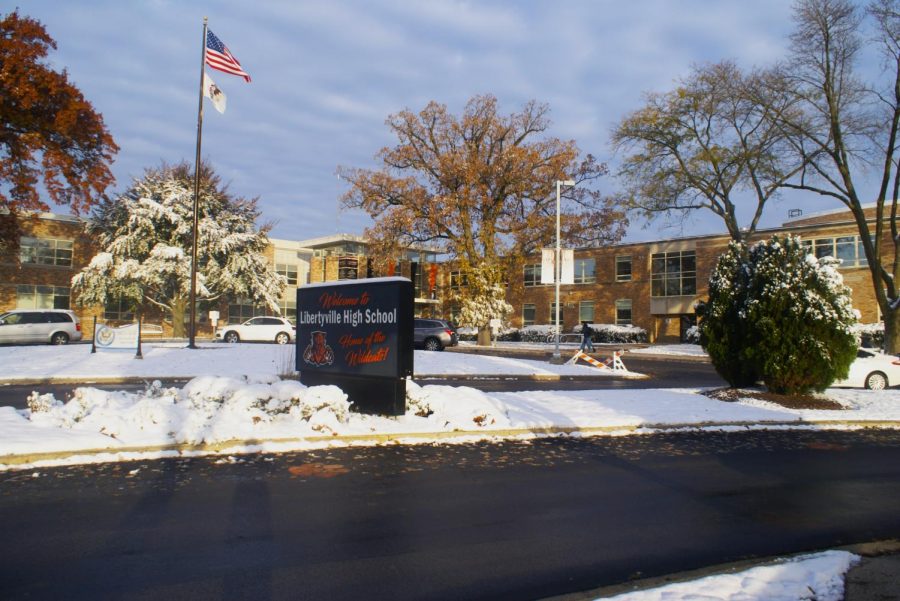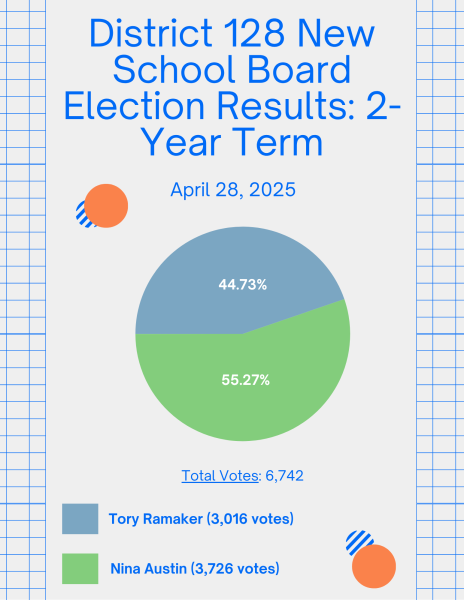Could remote learning mark the end of snow days?
The Covid-19 pandemic has had a massive impact on education and the way students are taught, including in District 128. Students have had to quickly adapt to a new structure of school: remote learning. This has led to a system where students and staff can continue school without having to enter the building. Does this mean potential future snow days will become remote learning days?
“The best answer may be, it depends,” said Rita Fischer, assistant superintendent of District 128.
“Some students may recall that D128 used an asynchronous e-learning day during the 2018-19 school year when severe weather required a number of school closings. We had a state-approved e-learning plan prior to the pandemic,” said Dr. Fischer. “Now that students and teachers have had so much [synchronous] Zoom practice, it can be an option on a snow day rather than fully asynchronous learning.”
Dr. Fischer indicated that it is likely that a snow day would be changed into a synchronous e-learning day over Zoom. Given these circumstances, this means that additional days would not be added to the end of the school year; this has rarely happened in the past because the district builds in a greater number of days than is required by the state.
Despite the likelihood of no more traditional snow days, they could still happen.
“There may still be days in the future when the snowfall limits student and teacher contact, and the day is a true snow day,” explained Dr. Fischer. “The positives of staying connected on weather emergency days include continuity of learning and not having to extend the school year with extra days.”
With the possibility of no more snow days, there is bound to be a vast mix of reactions from teachers and students. LHS Principal Tom Koulentes said that he is “truly torn” about how to feel.
“On one hand, even I, as a principal, love a good snow day. There is something special about waking up in the morning to find out school is canceled for a day. There is a bit of childhood magic in that,” he said. “On the other hand, when you have several snow days in a row, it can disrupt school and all the important things that happen in class, so it is great that we can now keep learning when we can’t come into school.”
Unlike Dr. Koulentes, sophomore Emily Fink stands with a clear opinion on the issue. Fink explained that she would “prefer to leave snow days as a day without classes, [but to] let the teachers decide if they want to give work or not.”
Fink believes there should be some flexibility with future snow days. She indicated that some classes are more flexible than others and that some may find it more necessary to meet together synchronously on a snow day, as long as weather conditions do not interfere.
Fink strongly believes that this is a good idea because she worries that “students, specifically freshman, will have more trouble handling the situation.”
Students who are currently in middle school have not yet experienced what high school classes are like through Zoom, she mentioned. Therefore, Fink believes that a sudden change may be difficult for some students to manage, especially with never experiencing it before in a high school setting.





![Mr. Abullh Ali, manager/assistant, helps open Queen Yemeni Coffee in downtown Libertyville at 606 North Milwaukee Ave. With the help of employees such as manager and LHS senior Yousef Taha, they are able to bring the Yemeni and Ethiopian culture to Libertyville by using their Queen spices, cinnamon and cardamom in their drinks such as Adani Chai, which is inspired by Sheda, the Queen of Yemen and Ethiopia. “The history of our coffee [is] a long history and we believe that Yemen and Ethiopia started the coffee and we are bringing something unique to the community,” Mr. Ali said.](https://www.lhsdoi.com/wp-content/uploads/2025/04/Photo-1-600x400.jpg)


